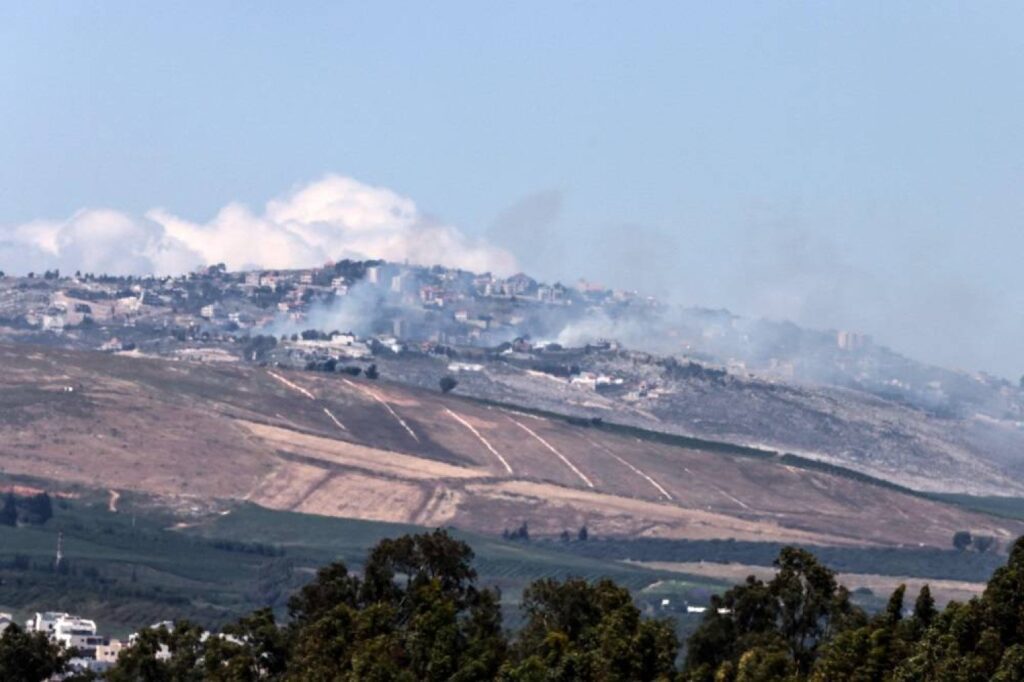On Wednesday morning, Hezbollah launched more than 100 rockets towards numerous Israeli locations from the Galilee areas all the way to Tiberias.
In one of the largest barrages since the beginning of the fighting on October 8, 2023, the attack is viewed as a response to an Israeli strike in the southern Lebanese town of Jwaya on Tuesday night, which assassinated Hezbollah commander “Abu Taleb” Sami Abdallah.
Abdallah is considered the highest ranking commander that Israeli forces have killed since the start of the fighting, being responsible for coordinating the Nasr unit and the man behind numerous operations on northern Israeli targets.
The fighting between Hezbollah and Israeli forces continues its escalatory direction, as Hezbollah also mourned three other members alongside Abdallah, namely Abbas Nasser, Bilal Alaa Al-Din and Hadi Moussa according to a report by Megaphone.
Hezbollah’s barrage caused sirens to go up in Tiberias for the first time since last October, including in over 32 settlements.
The UN Security Council Resolution
This week, the United Nations Security Council also issued a resolution calling for an immediate full and complete ceasefire.
The resolution also includes the release of all other hostages still in Gaza and the full withdrawal of Israeli forces from Gaza in its second phase.
On phase three, “a major multi-year reconstruction plan for Gaza” would begin. The UN Special Rapporteur on the Occupied Palestinian Territories, Francesca Albanese, asserted that Israel should pay for the reconstruction of Gaza, and not the international community to achieve some form of accountability.
Finally, the resolution also reiterated the Security Council’s commitment for a two-state solution, with a vision of two democratic states living side-by-side in consistence with relevant UN resolutions.
Albanese also criticized this part of the resolution, asserting that the Security Council should not infringe on people’s right to self-determination, even if there’s a fear of “extremist parties” taking over.
Does It Matter?
Back-to-back decisions and stances by multiple international organizations and states have hitherto failed to stop the ongoing Israeli aggression on Rafah, Gaza more broadly, the West Bank, Lebanon, Syria and other countries in the region.
With this Security Council resolution, it remains to be seen whether it will result in concrete pacifist steps.
As matters stand, what is left of international institutions’ popular legitimacy faces its strongest test.
